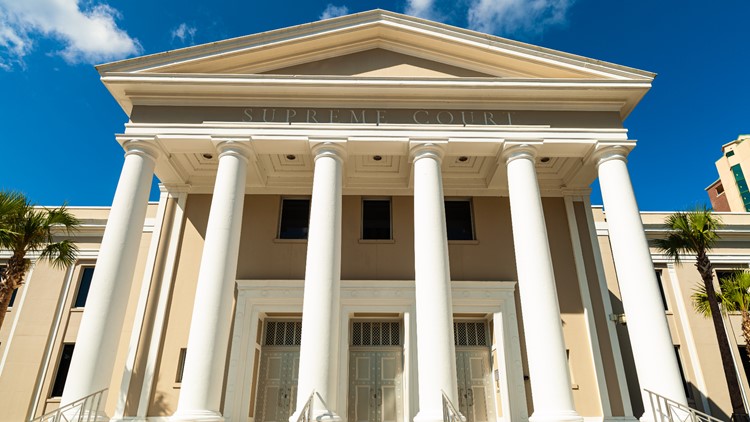The city of Tallahassee will ask the Florida Supreme Court to review an appeals court decision that Marsy's Law protects the identities of police officers in use-of-force situations.
Earlier this month, the First District Court of Appeals unanimously ruled officers were afforded privacy under the 2018 voter-backed state constitutional amendment that shielded the identities of crime victims. Now, the city is asking for another opinion.
The April 6 appellate decision in question was centered on a deadly shooting that happened on May 27, 2020, when a Tallahassee Police Department officer killed 38-year-old Natosha Tony McDade. Police had responded after McDade stabbed the son of a next-door neighbor to death, according to the Tallahassee Democrat.
Tallahassee leaders were expected to publicly release the officer's name, in addition to another officer involved in a separate case, the newspaper reported. But the Florida Police Benevolent Association eventually sued the city, arguing the officers were impacted by aggravated assaults and were entitled to have their names kept private.
The three-judge panel of the 1st District Court of Appeal agreed with the police union, reversing a July circuit court ruling by previous Leon County Circuit Judge Charles Dodson who ordered the city to release the names of the officers in the interest of both holding government accountable and protecting victims' rights, according to WFSU.
The appellate judges reiterated the amendment's definition of a "crime victim," meaning "...a person who suffers direct or threatened physical, psychological, or financial harm as a result of the commission or attempted commission of a crime..." and stated a police officer falls under that definition when their life is threatened.
"That the officer acts in self-defense to that threat does not defeat the officer’s status as a crime victim," the 13-page opinion reads, in part.
"Nothing in article I, section 16 [of the Florida Constitution] excludes law enforcement officers—or other government employees—from the protections granted crime victims," Judge Lori Rowe wrote, concurred by judges Robert Long and Timothy Osterhaus.
The city of Tallahassee disagrees and is asking the state's highest court to weigh in. City Attorney Cassandra K. Jackson sent the following statement to CBS affiliate WCTV:
“The City of Tallahassee intends to seek review before the Florida Supreme Court of the First District Court of Appeal’s April 6, 2021, decision finding that police officers, while performing their public duties, are to be afforded the protections of Marsy’s Law. This case is one of great public importance to the State of Florida in its appellate level interpretation of Article 1, Section 16 of the Florida Constitution (Marsy’s Law). With respect for the Court’s opinion and appreciation of the difficult work performed by police officers every day, the decision has far-reaching implications related to public transparency and is deserving of final review by Florida’s highest court.”
What other people are reading right now:
- Reports: New CDC outdoor mask guidance may be announced Tuesday
- Turnout low as Johnson & Johnson vaccine returns in Florida
- Biden to sign $15 minimum wage for federal contract workers
- Investigation: Derek Chauvin held a teenager down prone for 17 minutes
- Former Bucs, FSU linebacker Geno Hayes dies at 33
- Pandemic creates a plethora of mental health jobs
►Breaking news and weather alerts: Get the free 10 Tampa Bay app
►Stay In the Know! Sign up now for the Brightside Blend Newsletter



